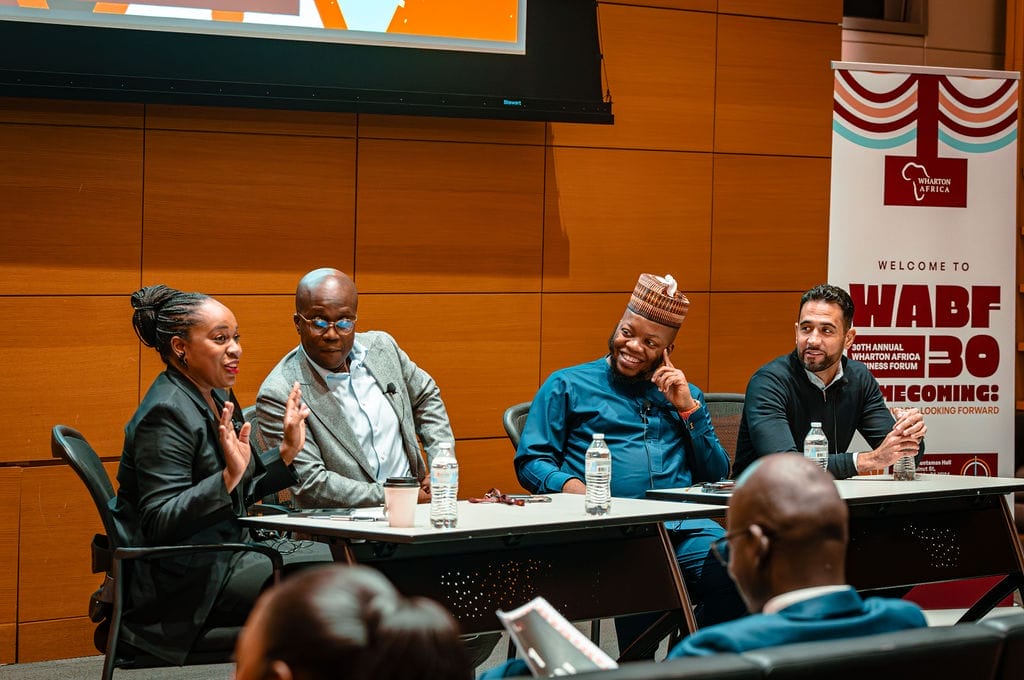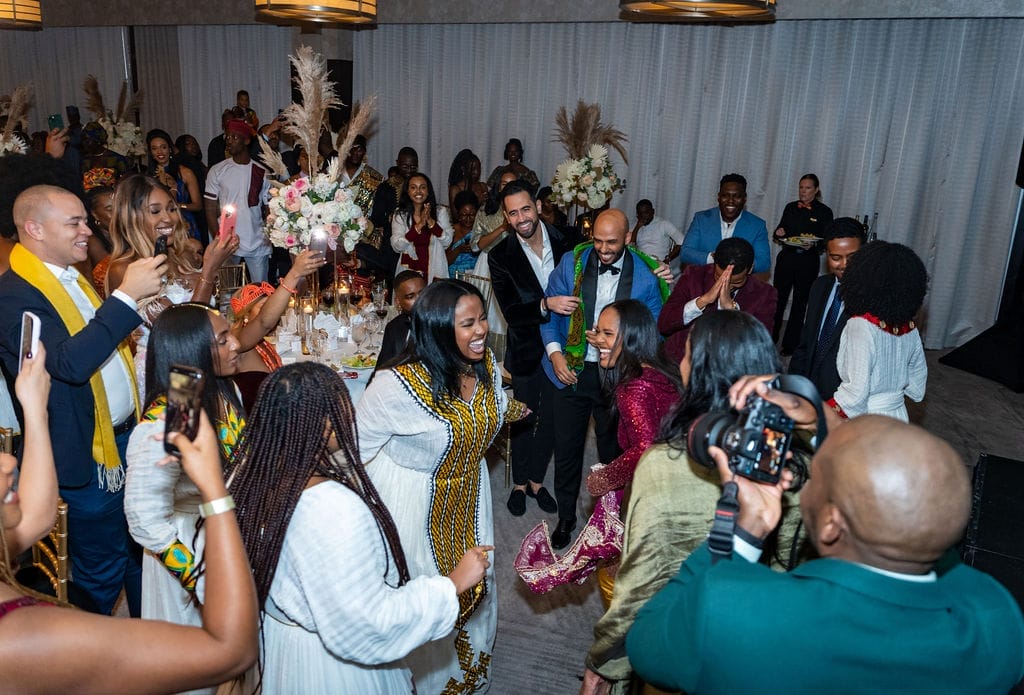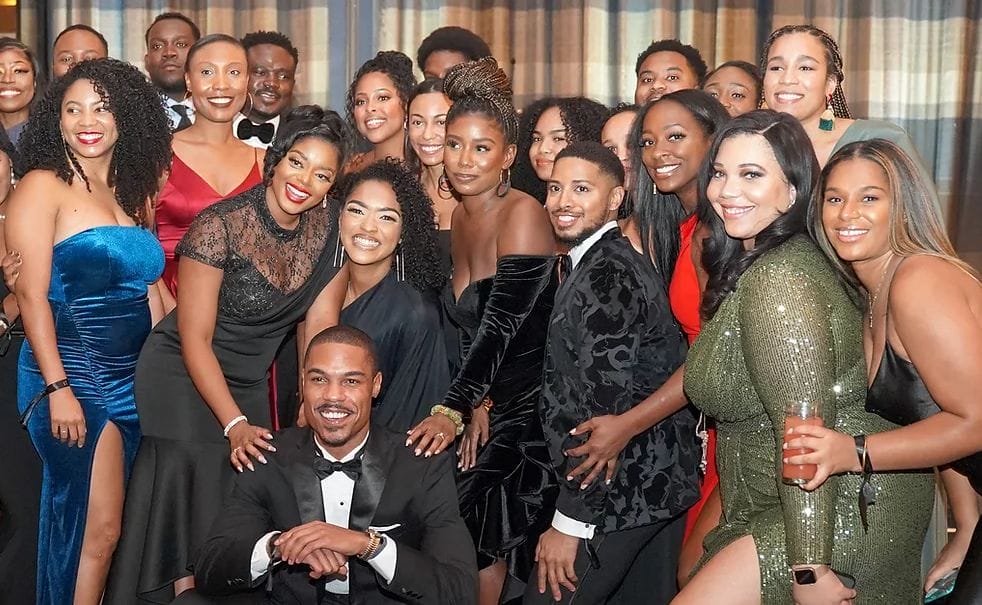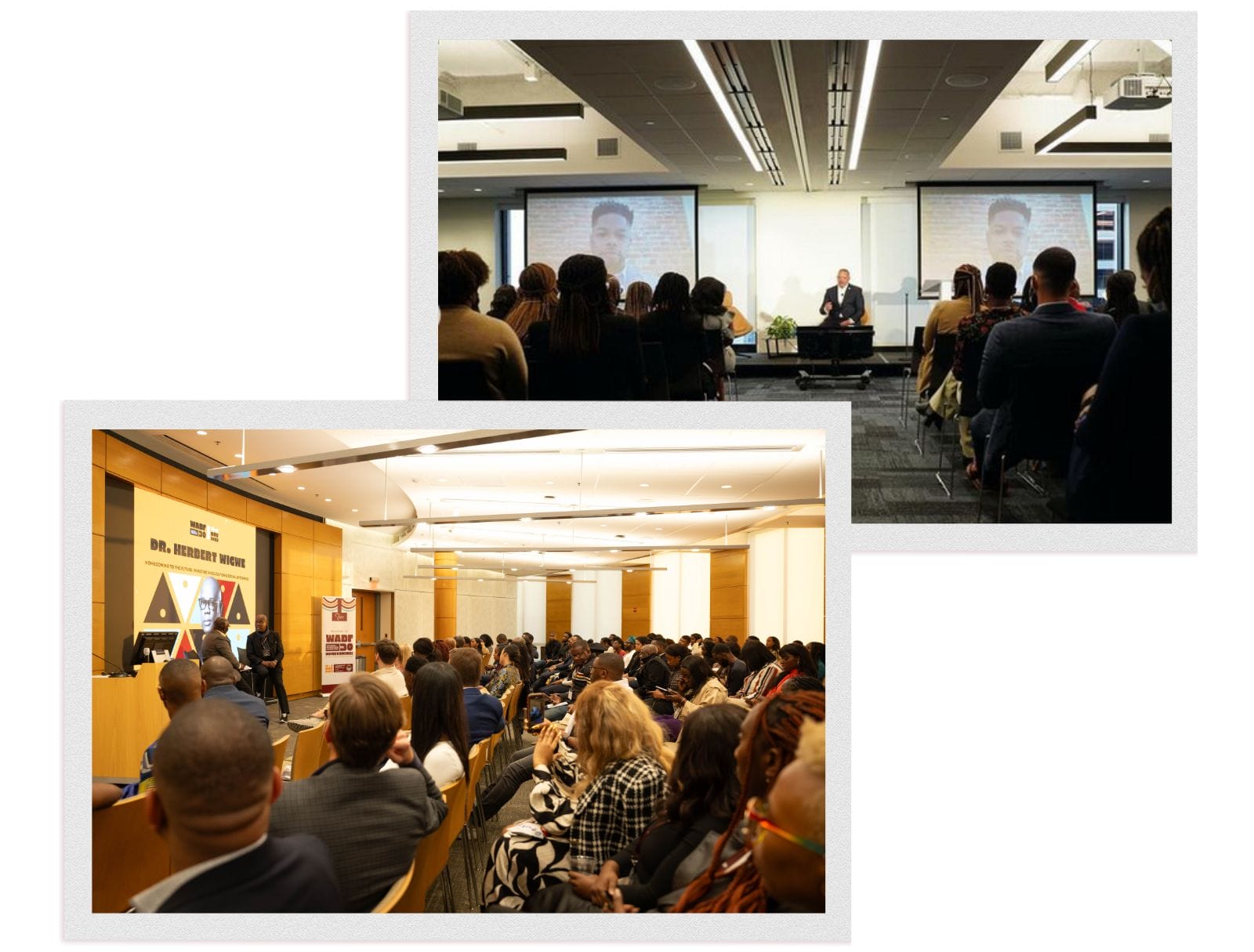One event was named for an American civil rights icon and the other has earned international recognition, but both share a common goal: elevating diversity within Wharton. While the upcoming Whitney M. Young Jr. Memorial Conference (WMY) on December 1-2 focuses on Black alumni and speakers stateside, the Wharton Africa Business Forum (WABF), which occurred November 10-11, aims to connect the African diaspora across borders.
“We say that Africa is the future,” says WABF co-chair Abisola Akinyemi WG24. “It’s important to get stakeholders in the room, get them talking about some of the things that are happening on the continent.”
With WABF’s reputation as the longest-running student-led African conference in the U.S., Akinyemi had no trouble convincing high-level international guests to make the trip. Keynote speakers for the 30th annual forum earlier this month ranged from the founder of a Lagos furniture store to the chief economist of an African export-import bank. There were also alumni panels, including one titled “Life After Wharton: Making Continental Impact,” on which Abdul-Hakeem Buhari WG18, co-chair of the 25th WABF in 2018, spoke.

WABF “Life After Wharton: Making Continental Impact” panelists, from left: Fanta Conde WG19, Paul Ansah WG04, Abdul-Hakeem Buhari WG18, Yassin Knocke WG14.
“I did not realize I was Black until I came to the U.S.,” Buhari remembers telling the panel. “I would dress up in my traditional way and come to class because it’s just what I’ve been used to. In Nigeria, everybody looks like you and you don’t recognize the privileges that that has.” Buhari, now an associate partner at McKinsey, has made the trip every November from Lagos to attend the forum since he graduated.
In addition to offering rare access to cross-cultural networking, WABF — which is run by the Wharton Africa Student Association (WASA) — can also be a launching pad. In its trademark New Venture Competition, 10 early-stage company founders (narrowed down from 125 applicants) pitched their ideas to a panel of judges. Anyone can apply; the only criteria is that their business solves a problem that relates to the African continent. This year’s prize was a total of $30,000 — in celebration of 30 years — split among four winners. First place was awarded to Reme-D, a Cairo-based manufacturer of diagnostic kits for human and animal diseases. Akinyemi says the investment opportunities are what makes WABF stand out from other conferences by “showcasing Penn as a business hub for emerging economies.”

The 2023 Wharton Africa Business Forum closing night gala at Sofitel Philadelphia.
The forum is also an escape from the daily grind of coursework and career planning, especially for students such as Akinyemi who recently moved to the states to attend Wharton: “It’s the opportunity to eat familiar food, dance to familiar music, and just banter in our local language.” She likes how the group has attracted more non-Africans, Europeans, and Wharton community members from around the world.
Buhari agrees that diversity is growing in WABF. “It’s bringing the best of both worlds together,” he says, “but also bringing the best of Wharton to Africa.”
When the founders of the Whitney M. Young Jr. Memorial Conference first got the idea for the event, it wasn’t a matter of “if” they would do it, but “how.” The question of “how can we continue to help those who follow us?” was the inspiration for Milton Irvin WG74, the president of the African American MBA Association. It was the Summer of 1973 when the leaders of Wharton’s newly-formed Black MBA Association (now the African American MBA Association, or AAMBAA) had a collective lightbulb go off in their heads: They could honor their forefathers while paying it forward. While there weren’t as many Black executives at that time, Irvin and his fellow student leaders used their combined networks and the occasional cold call to get the CEO of First Pennsylvania Bank and others onboard for a one-of-a-kind conference.
WMY’s namesake, Whitney M. Young Jr., had himself lobbied Fortune 500 companies on behalf of the National Urban League for better representation. The WMY founders contacted Whitney’s widow, Margaret Young, for permission to use his name. Margaret even spoke at the conference years later. “He was a social activist who at the same time understood economic empowerment,” says Irvin of Young.
With racial unrest spreading across college campuses, the founders weren’t sure if the conference would take off at all, let alone last 50 years. “We did it on the shoestring back in the day,” says co-founder Leroy Cody WG74. “It was untried.” Their entire budget was under $10,000 and half of that came from PepsiCo. For this year’s conference, $10,000 is the prize money for the Small Business Series, a competition that awards a Black-owned organization in Philadelphia. “The conference has been a platform to help launch entrepreneurism,” says co-founder Merritt Brown WG74. “I applaud the chairs and the co-chairs that instituted that.”

Last year’s Whitney M. Young black-tie gala.
Irvin says the entrepreneurial spirit of today’s WMY shows how far the conference has come in five decades. He says Black MBA students in the 70s were lucky for the chance to follow the track laid out for them. Now, they are creating their own businesses and supporting future founders. As opportunities have grown, so has WMY: The two-day event has drawn around 350 attendees in recent years, a number its organizers expect to surpass this weekend. “The atmosphere is electric,” says WMY 50th Conference Chair Dana Simone Powell WG24. “It is a reunion. It is a homecoming. It is a celebration.”
Aside from a two-day conference followed by a black-tie gala, WMY is also a networking opportunity. This year’s speakers will include Sadé Muhammad, chief marketing officer of Time, and Rosalind Brewer, former chief executive officer and director of Walgreens Boots Alliance, Inc. There will also be panel discussions on subjects such as the “Revolution of the Black Luxury Consumer.” Sponsors include American Express and BET. The range of industries represented impressed Powell, who is trying to break into sports and entertainment and draws inspiration from WMY’s trailblazers of today and yesterday.
“With the civil rights leaders that we’re honoring, there wasn’t always certainty that they’d be able to accomplish their vision, but they continued to have the resolve and the confidence that they need to do this,” says Powell. “So going back into the workforce, something that I’ll keep with me is knowing that as a leader, I need to lead with conviction.”


























